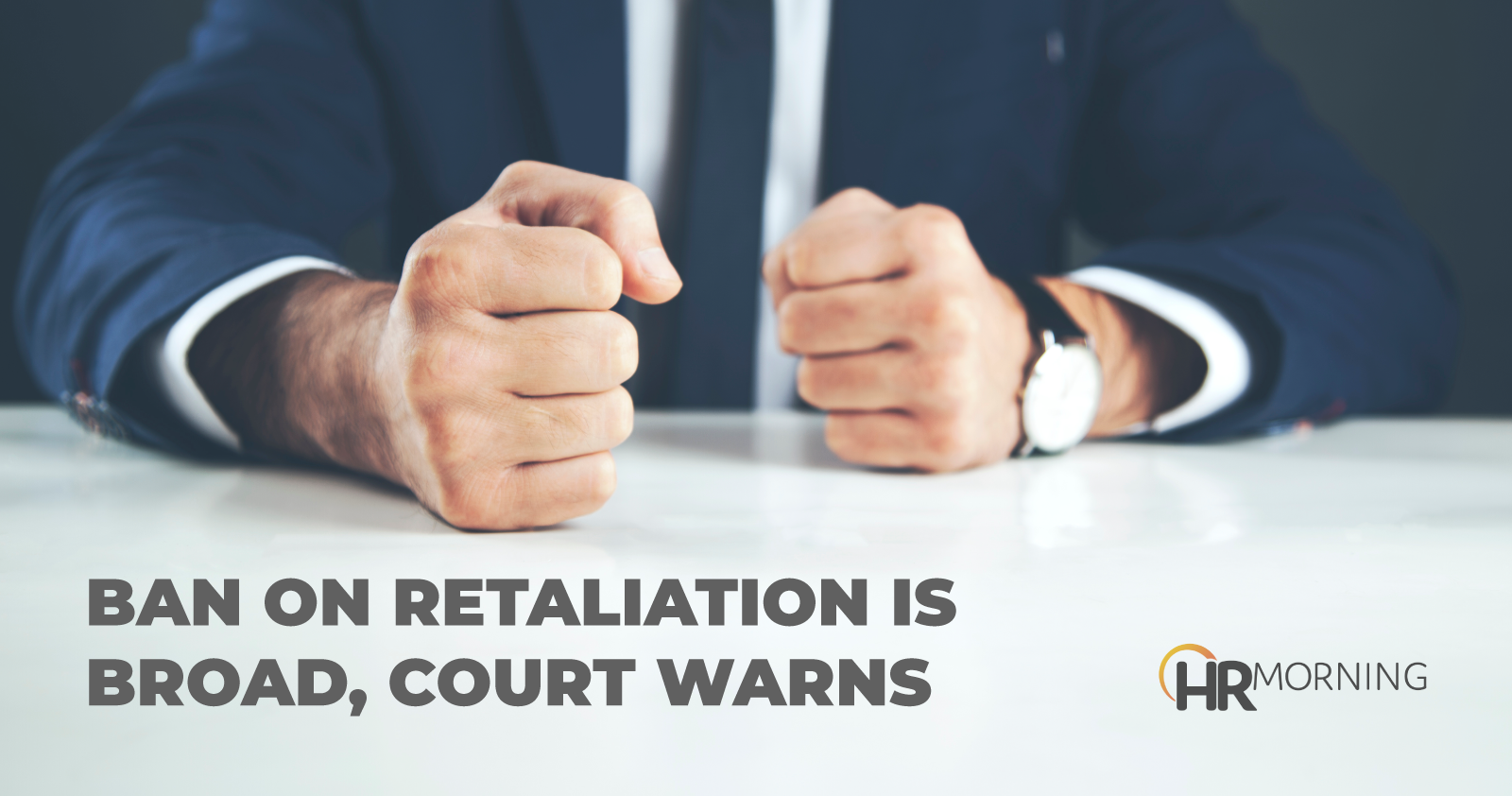In an important new ruling, a federal appeals court ruled that Title VII’s anti-retaliation provision applies to an HR manager’s claim that her employer fired her because she provided testimony against a prior employer in a pregnancy discrimination lawsuit.
Broadly interpreting the provision, the court rejected the employer’s argument that the provision does not apply to HR managers who are acting in the course of their employment duties. It further rejected the argument that an employee’s actions involving a former employer cannot form the basis for a Title VII retaliation claim against a current employer.
It’s certainly not a typical case, but it’s one all HR managers should be aware of.
In December of 2015, Georgia Pacific hired Jacqueline Patterson as a senior HR manager. She was assigned to a company mill in Alabama, and her supervisor worked out of an office in Atlanta.
Before starting at Georgia Pacific, Patterson worked in HR at Memorial Hermann Health System. There, she managed employee complaints, provided advice on employment-related matters, and helped the company comply with employment law requirements.
After she began working at Georgia Pacific, Patterson testified in a deposition, in her words, “on behalf of” three female employees at Memorial in connection with their allegations of pregnancy discrimination against Memorial.
One week after Patterson’s supervisor found out she had provided the deposition testimony, he terminated her employment. He did not give her a reason for his decision, but earlier he had told her that she “went against” Memorial at the deposition and that doing so “made things clear” to him. He also offered her $50,000 in exchange for an agreement not to sue Georgia Pacific. Patterson rejected the offer.
Instead, she sued Georgia Pacific, alleging unlawful retaliation under Title VII. Specifically, she said Georgia Pacific fired her because of her deposition testimony in the Memorial matter.
A federal district court ruled against her on two different grounds.
Was it anti-retaliation protected activity?
First, it said Patterson did not engage in protected activity because she was an HR manager, applying a so-called “manager exception” to Title VII’s anti-retaliation provision. Under this exception, it said, management employees do not engage in protected activity for purposes of Title VII’s anti-retaliation provision when, in the course of their job, they disagree with or oppose the actions of an employer.
Second, the district court found that the anti-retaliation provision did not apply because her opposition was to a former employer’s practices rather than any practice engaged in by her current employer.
Patterson filed an appeal, and the U.S. Court of Appeals for the Eleventh Circuit reversed.
The appeals court explained that Title VII’s anti-retaliation provision essentially consists of two clauses, which are referred to as the opposition clause and the participation clause.
As the name indicates, the opposition clause bars employers from discriminating against any employee because that employee has opposed a practice that is unlawful under Title VII. Similarly telling by its name, the participation clause prohibits employers from discriminating against an employee because that employee has participated in an investigation, proceeding or hearing under Title VII.
Patterson insisted that the conduct for which she was fired was covered by both clauses of Title VII’s anti-retaliation provision. Predictably, Georgia Pacific countered with the argument that neither clause applied to her actions.
Anti-retaliation provision is broad
First, the court rejected the lower court’s decision to apply the manager exception rule, saying it “has no basis in the text of Title VII’s opposition clause and actually contradicts the text of it.” Nothing in Title VII’s text, it explained, indicates that any category of employees should be subjected to a different legal standard when it comes to claims of retaliation under the statute.
Next, the court rejected the lower court’s finding that the opposition clause did not apply because the conduct that triggered Patterson’s termination involved a former employer.
“There is nothing in the anti-retaliation provision’s opposition clause that permits an employer to retaliate against one of its employees for opposing an unlawful employment practice of a former employer,” it said. The clause is broad, it noted, banning retaliation against any individual for having opposed any practice that Title VII forbids.
Under the opposition clause’s plain language, the court held, a current employer cannot retaliate for opposition clause conduct that only involves a former employer.
Patterson also engaged in protected activity under the anti-retaliation provision’s participation clause, the appeals court further decided. The plain text of that clause clearly covers her conduct, it ruled.
In addition, a fact issue was present as to whether her termination was related to her testimony, the court said, and a fact issue also existed as to whether Patterson was let go due to poor performance and excessive absences rather than because of her testimony.
The court reversed the lower court’s decision for Georgia Pacific and remanded the case for further proceedings.
The message of this decision is loud and clear: The anti-retaliation provision of Title VII is broad enough to cover a wide swath of employee activity. Be sure you are familiar with the specific language of this provision — and guard against taking any negative action against an employee who engages in conduct that it protects.
Patterson v. Georgia Pacific, LLC, No. 20-12733, 2022 WL 2445693 (11th Cir. 7/5/22).


